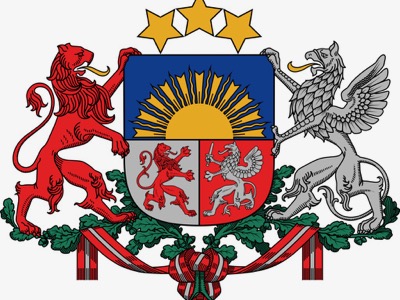
After establishing that the Republic of Latvia de jure is a sovereign country and that by the will of its people it should be independent, the Supreme Soviet ruled:
1. To recognize the priority of international laws over national laws. To hold to be illegitimate the treaty between the USSR and Germany of 23 August 1939, and the consequent liquidation of independence of Latvia resulting from Soviet military aggression on 17 June 1940.
2. To proclaim the declaration "On accession of Latvia to Soviet Union" of 21 July 1940, to be void from the moment of adoption.
3. To re-establish the authority of the Constitution of Latvia. The official name of the state of Latvia is the Republic of Latvia, in short Latvia.
4. To suspend the Constitution of Latvia until a new edition is adopted, except for the articles, which in accordance with the 77 article of the Constitution can only be amended if submitted to a national referendum:
• 1. Latvia is an independent democratic republic.
• 2. The sovereign power of the State of Latvia is vested in the people of Latvia.
• 3. The territory of the State of Latvia, within the borders established by international agreements, consists of Vidzeme, Latgale, Kurzeme and Zemgale.
6. The Saeima shall be elected in general, equal and direct elections, and by secret ballot based on proportional representation.
Article 6 shall be applied when the governmental institutions of independent Latvia have been restored, which grant free elections.
5. To set a period of transition to de facto independence until the first session of the new Saeima. During the transitional period the highest power of the state shall be the Supreme Council of the Republic of Latvia.
6. During the transitional period the Constitution of the Latvian SSR and other laws of the Latvian SSR in force at the time when the declaration was made may be applicable as long as they do not contradict articles 1, 2, 3 and 6 of the Constitution of Latvia. Disputes over the applicability of laws shall be resolved by the Constitutional Court. During the transitional period laws shall be made or amended only by the Supreme Council.
7. To constitute a committee, which will elaborate a new edition of the Constitution of Latvia, suitable to the current political, economic and social state of Latvia.
8. In accordance with international human rights, to grant social, economic and cultural rights, as well as political freedoms, to the citizens of Latvia and other countries, who reside in the territory of Latvia. This shall fully apply to those citizens of the Soviet Union who chose to reside in Latvia without its citizenship.
9. To build Latvian-Soviet relationships upon the Latvian-Soviet peace treaty of 11 August 1920, in which the Soviet Union recognizes eternal independence for Latvia and which is still in force. To constitute a committee for negotiations with USSR.












Stay In Touch
Follow us on social networks
Subscribe to weekly newsletter